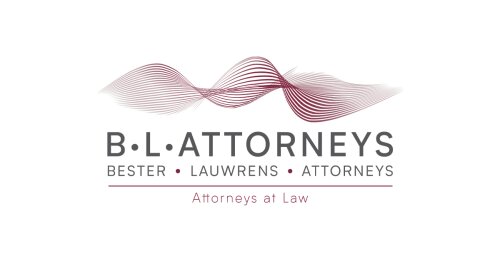Best Land Use & Zoning Lawyers in Cape Town
Share your needs with us, get contacted by law firms.
Free. Takes 2 min.
Free Guide to Hiring a Real Estate Lawyer
List of the best lawyers in Cape Town, South Africa
About Land Use & Zoning Law in Cape Town, South Africa
Land use and zoning law in Cape Town, South Africa, is a critical aspect of urban planning and property development. These laws regulate how land within the city and its surrounding areas can be used. This encompasses residential, commercial, and industrial zoning, ensuring an organized and sustainable development of the urban environment. Zoning laws help balance different interests, like preserving natural resources while fostering economic growth. In Cape Town, these regulations are guided by the Spatial Planning and Land Use Management Act (SPLUMA) and municipal by-laws that reflect the city's unique geographic and cultural landscape.
Why You May Need a Lawyer
Legal expertise in land use and zoning is often required for several reasons. Common situations include proposing new developments, where you need to ensure compliance with local regulations. Property owners might require assistance to object to a neighbor's building plans that might infringe on their privacy or devalue their property. Land use disputes often arise, requiring negotiation or litigation. Changes to the zoning of a particular area can also affect property values, requiring legal advice to navigate potential impacts. Environmental concerns are another reason, particularly because Cape Town's zoning laws aim to protect its natural heritage.
Local Laws Overview
Key aspects of Cape Town's land use and zoning laws include:
- The City of Cape Town Development Management Scheme, which outlines permissible land uses in various zones.
- Environmental protection laws, such as those governing the spatial development framework to preserve biodiversity.
- Building regulations, which assure that any construction meets safety and environmental standards.
- SPLUMA’s guidelines on integrated and sustainable spatial planning across different regions within the city.
- Public participation processes in developments and rezoning applications, ensuring community involvement in urban planning decisions.
Frequently Asked Questions
What is zoning, and why is it important?
Zoning determines the specific land-use regulations for different areas within Cape Town, designating areas for residential, commercial, industrial, or other specific purposes. This ensures organized development and prevents incompatible land uses from negatively impacting communities.
How can I find out the zoning of my property?
Property owners can access zoning information through the City of Cape Town’s online services or by visiting the municipal planning office. Zoning maps and records specify allowable uses and restrictions for each property.
Can zoning laws be changed?
Yes, zoning laws can be amended through a rezoning application process. This involves a formal request to the municipality, public consultations, and sometimes approval from higher government authorities.
What should I do if my development plans are rejected due to zoning issues?
You can appeal the decision with the assistance of a lawyer, who can help present a case that addresses the municipality's concerns or advise on amending your proposal to comply with existing regulations.
Are there penalties for violating zoning laws?
Yes, non-compliance with zoning regulations can lead to fines, a halt on construction, or even a mandate to revert the property to its previous state.
What role does public participation play in land use decisions?
Public participation is crucial in Cape Town’s land use planning, ensuring transparency and community involvement. The municipality is required to hold public hearings before approving major zoning changes or developments.
How can environmental factors influence land use decisions?
Environmental laws in Cape Town aim to protect its unique ecology. These can restrict developments in ecologically sensitive areas, requiring environmental impact assessments before approval.
What is SPLUMA, and how does it affect land use in Cape Town?
The Spatial Planning and Land Use Management Act (SPLUMA) provides a framework for spatial planning, ensuring uniformity and coordinated development guidelines across the country, including Cape Town.
What are the consequences of unauthorized land use changes?
Unauthorized land use changes can lead to legal action from the municipality or affected parties, including fines, demolition orders, or compulsory compliance measures.
How can I oppose a development project in my neighborhood?
You can submit your objections during the public participation phase, supported by valid reasons related to zoning compliance, environmental concerns, or potential impacts on community welfare.
Additional Resources
For more information or resources about land use and zoning in Cape Town, consider contacting the following:
- City of Cape Town’s Development Management Department
- The South African Property Owners Association
- Local ward councillors and community planning forums
- The Western Cape Department of Environmental Affairs and Development Planning
Next Steps
If you need legal assistance in land use and zoning, start by consulting a lawyer who specializes in this field. They can help interpret local laws and advise on your specific situation. Check if they have experience with the City of Cape Town's processes and ideally have a background in environmental and construction law as well. Ensure to gather all relevant documents, such as property deeds, zoning maps, and any correspondence with city officials, to facilitate an informed discussion.
Lawzana helps you find the best lawyers and law firms in Cape Town through a curated and pre-screened list of qualified legal professionals. Our platform offers rankings and detailed profiles of attorneys and law firms, allowing you to compare based on practice areas, including Land Use & Zoning, experience, and client feedback.
Each profile includes a description of the firm's areas of practice, client reviews, team members and partners, year of establishment, spoken languages, office locations, contact information, social media presence, and any published articles or resources. Most firms on our platform speak English and are experienced in both local and international legal matters.
Get a quote from top-rated law firms in Cape Town, South Africa — quickly, securely, and without unnecessary hassle.
Disclaimer:
The information provided on this page is for general informational purposes only and does not constitute legal advice. While we strive to ensure the accuracy and relevance of the content, legal information may change over time, and interpretations of the law can vary. You should always consult with a qualified legal professional for advice specific to your situation.
We disclaim all liability for actions taken or not taken based on the content of this page. If you believe any information is incorrect or outdated, please contact us, and we will review and update it where appropriate.















